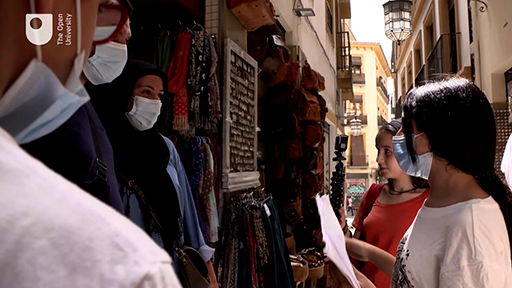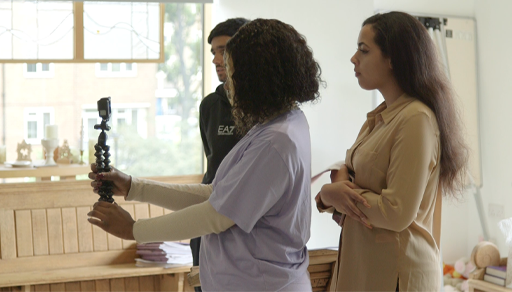Introduction and guidance
Introduction
This free course is intended for teachers and other educators and leaders working with young people in both formal and informal educational settings. The course will provide practical guidance and resources for running workshops for young people between the ages of 13 and 18 to stimulate reflection on religious diversity.
Young people and religion: creative learning with history presents conclusions from a major European project on Religious Toleration and Peace (RETOPEA). This project explored historical and contemporary examples of religious diversity to provide an informed basis for thinking about how to make contemporary society more harmonious. Using the findings, this course will enable you to engage young people with a collection of short texts, images and videos (which will be referred to as ‘clippings’) to broaden their understanding of the subject and make their own short films (which will be referred to as ‘docutubes’) to share their ideas and experiences. Some of the concepts explored and learning activities suggested can also be pursued independently of the filmmaking exercise.

The docutube workshops are based on a pedagogic approach that encourages young people to be active, creative, express their voice and ‘make and do’, rather than ‘sit back and be told’ or simply recall facts. The workshops aim to inspire a ‘hands-on approach to learning, and a spirit of enquiry and questioning’ (Gauntlett, 2011, p. 12). It has been found that the creative process of making short films can be a good way of encouraging young people to actively engage with and reflect on issues relevant to religious toleration and peace in the past and present. This awareness enriches their perspectives on their present-day situation which they are then able to articulate in films. The process can also support the development of a range of other important skills, such as successful team working, inspiring young people to connect with each other, whilst stimulating their curiosity and imagination.
The course has been developed through a series of pilot workshops with young people in eight European countries (Belgium, Estonia, Finland, Germany, Poland, North Macedonia, Spain and the UK). A large majority (83%) of the 65 young people that completed anonymous questionnaires as part of the evaluation of our pilot workshops told us that the RETOPEA project helped them think of religious toleration and peace in new ways, saying, for example, that ‘It has made me realise and think about religious peace and how my actions can help keep peace’. 80% felt that making a docutube film helped them learn about religious peace and toleration. 92% said that they enjoyed making their docutubes, telling us, for instance, that they liked that the workshop involved ‘practical learning, not just reading books’, working ‘with your hands and your brains’ as well as ‘communicating with other people and learning about their opinion’.
During the course you will view a series of short films giving you a flavour of what happens at a RETOPEA workshop. To begin the course watch this first short film.

Transcript: Video 1
[MUSIC PLAYING]
[BELL TOLLS]
[MUSIC PLAYING]
[MUSIC PLAYING]
You can work through the course at your own pace. You will be able to test your understanding of the course through the interactive quizzes at the end of each session. The Session 4 quiz will provide you with an opportunity to earn a digital badge to demonstrate your new skills. You can read more on how to study the course and about badges in the next sections.
After studying this course, you should be able to:
- demonstrate awareness of the attitudes of young people to matters of religious toleration and peace both in a local context and in wider European perspective
- help young people articulate and reflect on their own ideas and attitudes regarding religion and religious diversity
- find online resources designed to stimulate and inform young people’s thinking about religion through increased awareness of its role in history and in present-day politics, media and culture
- confidently lead a group of young people in planning and making short films to put forward their own ideas about religious toleration and peace
- reflect critically with the workshop participants on what everyone has learned from the experience.
Moving around the course
In the ‘Summary’ at the end of each section, you will find a link to the next section. If at any time you want to return to the start of the course, click on ‘Full course description’. From here you can navigate to any part of the course.
It’s also good practice, if you access a link from within a course page (including links to the quizzes), to open it in a new window or tab. That way you can easily return to where you’ve come from without having to use the back button on your browser.
